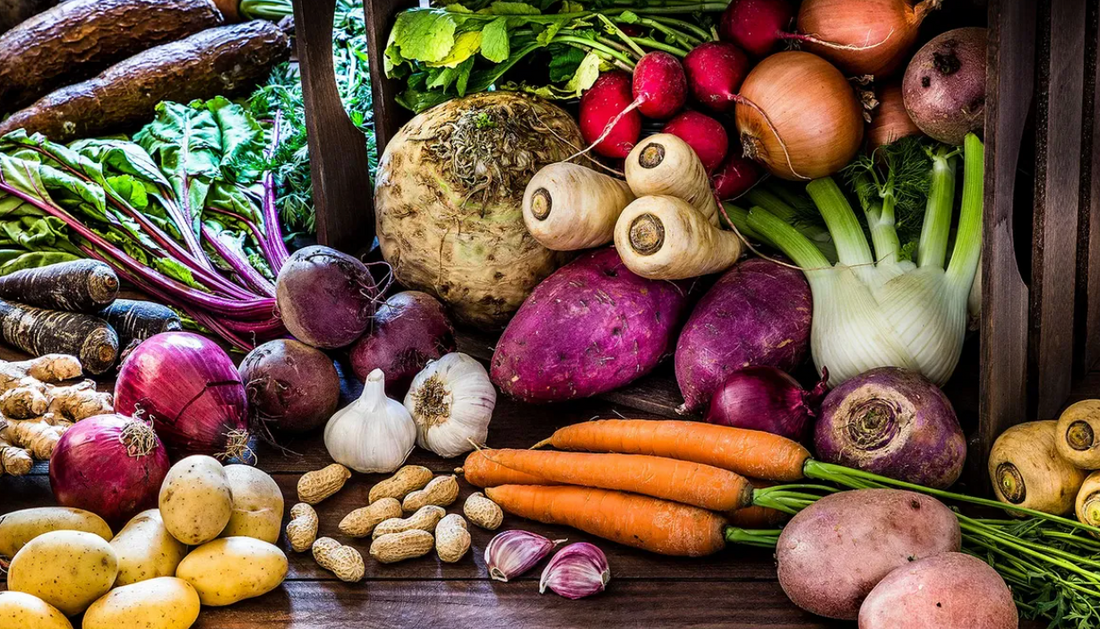
The Declining Nutrient Density of Fruits and Vegetables: Unveiling the Soil's Secret
In today's health-conscious society, the focus on consuming fruits and vegetables as part of a balanced diet has never been stronger. However, there is growing concern about the declining nutrient density of these plant-based foods. Despite their vibrant appearance, it turns out that fruits and vegetables are not as nutrient-dense as they once were. The primary culprit behind this phenomenon lies deep beneath our feet - the depletion of essential nutrients in the soil. In this blog post, we will explore the reasons behind this issue and its potential implications for our health.
Soil depletion refers to the gradual decline of essential nutrients in the soil, primarily due to unsustainable agricultural practices. Modern farming techniques, such as intensive monocropping and the excessive use of synthetic fertilizers, have disrupted the natural balance of nutrients in the soil. Over time, this depletion affects the nutrient content of the crops grown in these soils.
The decline in soil fertility directly affects the mineral content of fruits and vegetables. Minerals like calcium, magnesium, iron, and zinc, which are vital for our health, are no longer present in the same abundance as they once were. Studies have shown that the mineral content of several crops has significantly decreased over the past few decades, with some nutrients showing declines of up to 40%.
Apart from minerals, the vitamin content of fruits and vegetables has also been affected. Vitamins such as vitamin C, vitamin B6, and folate have been found to decrease in certain crops due to soil depletion. Inadequate levels of these essential vitamins can have a profound impact on our overall health and well-being.
In addition to the decline in minerals and vitamins, imbalanced macronutrient ratios have become a concern in modern agricultural practices. Nitrogen-rich fertilizers used extensively in farming promote rapid plant growth, resulting in crops with higher carbohydrate content but lower protein levels. This imbalance can have implications for individuals seeking a well-rounded nutrient profile in their diets.
The declining nutrient density of fruits and vegetables has significant implications for human health. Consuming produce with lower nutrient levels means we may need to consume larger quantities to obtain the same nutritional benefits as in the past. This can be a challenge, particularly for those with limited access to fresh produce or dietary restrictions.
Considering supplementation can be a practical solution to help bridge the nutrient gap. Supplements can provide concentrated doses of essential vitamins and minerals, ensuring that your body receives adequate nutrition even when dietary sources may fall short. Vitamin rich functional foods and beverages like Vitaminis can help to bridge nutrient gaps when paired with a balanced diet. Vitaminis Immune Support is rich in Vitamin C, Zinc and Magnesium, all three of which have been depleted in modern fruits and vegetables.
While fruits and vegetables remain a vital part of a healthy diet, their nutrient density has suffered due to soil depletion. The declining levels of minerals, vitamins, and imbalanced macronutrient ratios emphasize the need for sustainable agricultural practices and conscious consumer choices. By considering dietary supplementation with products like Vitaminis and supporting regenerative farming methods, we can take steps to improve our own health and contribute to a more sustainable food system for future generations
